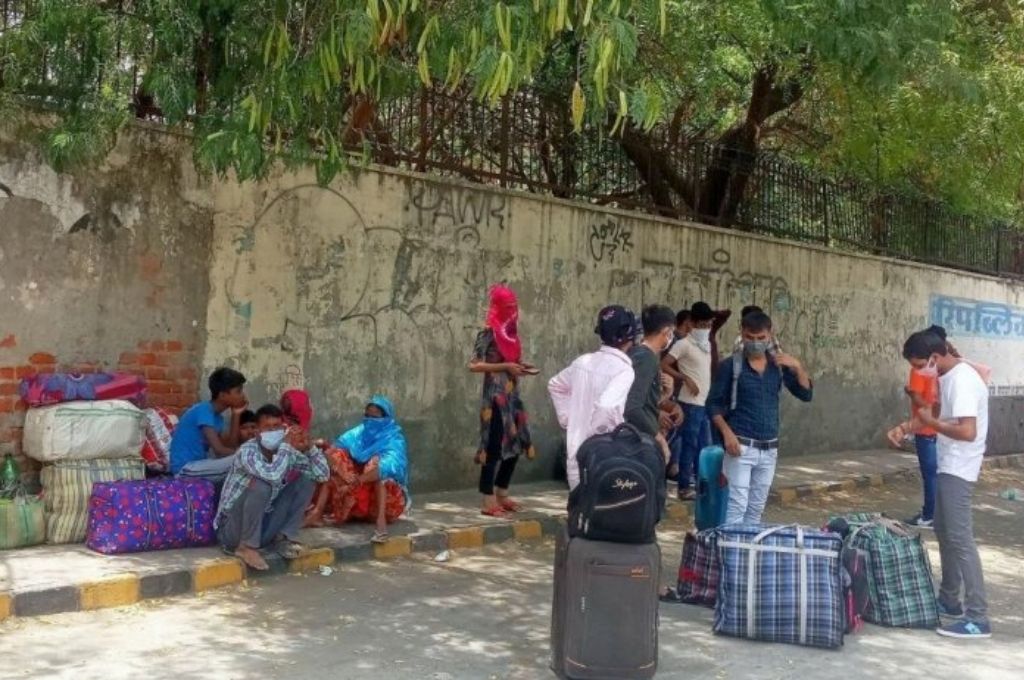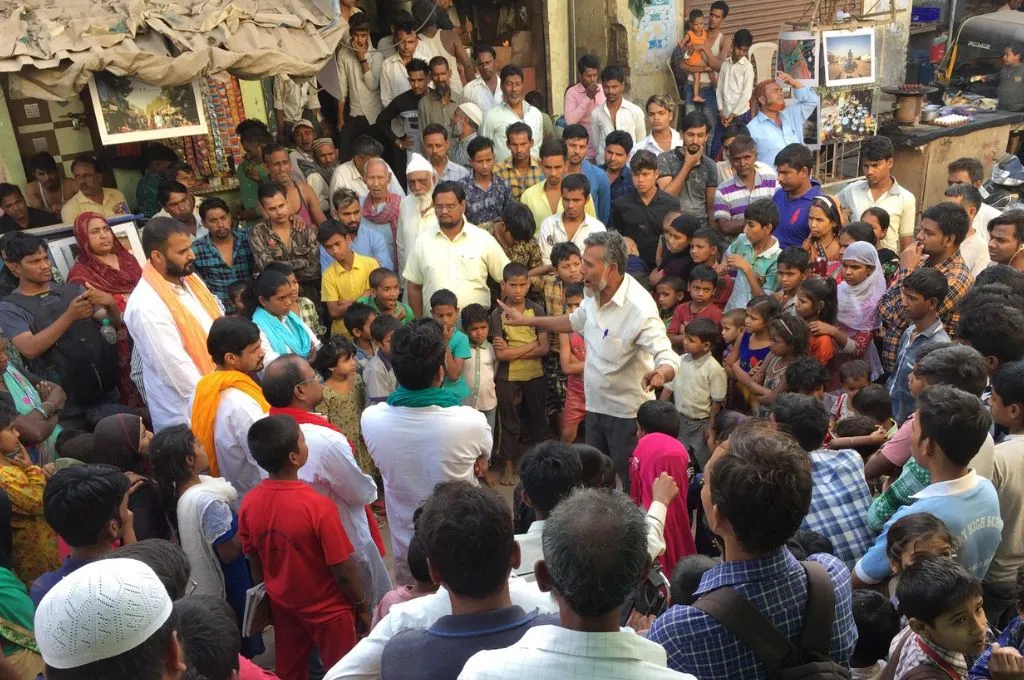Mobility restrictions due to the pandemic continue to cause havoc in the lives of internal migrant workers whose livelihoods depend on low paying jobs in the unorganised sector. The situation is dire with workers experiencing loss of employment, lack of job opportunities at source locations, reduced or no income, and increasing debt. In such desperate situations, migrants are taking up any job that comes their way, irrespective of pay and conditions of work. Further, they are increasingly at the mercy of unlicensed contractors or recruiters who could potentially push them into forced labour situations. Given these circumstances, our foremost priority must be to ensure safe migration and timely access to justice for distressed migrants who continue to migrate.
Steps have been taken towards improving the portability of services such as the Public Distribution System (One Nation, One Ration Card) and some healthcare schemes. However, it is concerning that a critical service—the portability of the criminal justice system—is missing from most public discourses. Unfortunately, even the most comprehensive working group report on migration doesn’t cover the portability of criminal justice services. While portability of the criminal justice system is important for all internal migrants, this article focuses on the rights of the 140 million seasonal migrant workers in India, who are disproportionately vulnerable since they are usually more economically strained and largely belong to marginalised communities.
‘Portable justice’, a term coined by the Global Workers Justice Alliance, is defined as the ‘ability of transnational migrant workers to access justice in destination countries even after departing to their home countries’. Though the usage of this term is in the context of international migration, a large proportion of seasonal migrants in India could benefit from its application at a domestic level. In principle, through Article 39A of the Constitution, the criminal justice system in India provides all citizens the right to access free legal aid across the country. Further, under Article 19 (1) of the Indian Constitution, citizens have the fundamental right to move freely, reside, and settle down anywhere in the country. Regardless of these constitutional rights and the fact that citizens can access justice anywhere in India, the existing justice architecture is not designed to cater to poor migrant workers who are engaged in the informal sector.

Short migration cycles, varying migration durations, and constant mobility are characteristic of seasonal migration and have direct implications on seasonal migrants’ access to the criminal justice system. Evidence suggests that seasonal migrants experience low wages (that are often below the statutory minimum wages), hazardous working conditions, and are unable to access basic social security benefits. The vulnerability of female migrant workers is much higher than their male counterparts owing to problems such as the pay gap, lack of upskilling opportunities, and lack of safe working and living conditions. According to a survey by Evidence for Policy Design, 69 percent of unemployed women who expressed willingness to migrate for work, voiced fears about the lack of safety at destination locations. In such a scenario, the inability to access protection measures through legal recourse at destination states could limit their mobility and hamper their employment prospects. This is an important concern for a country that has experienced a steady fall in female labour force participation.
Daily wage migrants are routinely treated as ‘outsiders’ and their sense of alienation is aggravated when coupled with experiences of wage theft, poor working conditions, and low levels of awareness of their rights, laws, and services that are available to them from the criminal justice system. According to Sitaram Solanki, a lawyer who works on bonded labour and sexual violence cases at Jan Sahas, “When migrants move to distant locations, they are unaware about registration requirements at their home state before migrating. Once they reach the worksites/factories, they have no contact with the local administration as well. A cry for help doesn’t make a difference because these contractors/employers are generally locally powerful. Migrants are considered outsiders, so no one cares about them.” Further, institutions such as police stations and legal aid services are often difficult to access in the remote locations that these workers generally migrate to; for instance, brick kilns that are often situated in rural or peri-urban regions.
In cases of non-payment of wages, which is one of the most rampant violations that migrant workers face across different sectors of employment, serious impediments to justice exist.
While procedures such as Zero FIR exist for cognisable offences—which allow first information reports (FIRs) to be filed in any police station across India, irrespective of jurisdictional limitation—they are only one part of a highly complex structure. For cognisable offences where the Zero FIR is filed at the police station of convenience, all other procedures such as court trials and investigations are carried out at the place of the crime. In such instances, the necessary follow-ups prove to be difficult for seasonal migrants even with state provided expense compensations, as it does not off-set expenditures resulting from wage loss. It also does not adequately consider the nature of the jobs of these migrants who migrate to varied locations for contract-based work. Special concessions such as transferring cases to home states, assignment of exclusive social workers, and video conferencing systems may be the way forward. With the onset of the pandemic, there has been a concerted effort towards using video conferencing by the courts. Going forward, provisions such as the Nyay Kaushals that facilitate electronic filing of cases across courts, combined with measures such as improving access to free internet facilities, should be provided as practical options to seasonal migrants to overcome geographical barriers to accessing justice.
For non-cognisable offences such as assault or cheating, migrants have no option but to file the case at destination locations and follow up regularly. For instance, in cases of non-payment of wages, which is one of the most rampant violations that migrant workers face across different sectors of employment (such as construction and manufacturing), serious impediments to justice exist. Wage loss from non-payment of wages is estimated to be more than INR 6,400 crore per year for seasonal migrants in the construction sector alone. A study conducted by Centre for Migration and Labour Solutions in southern Rajasthan found that one-third of workers in a given year faced at least one wage dispute. Despite this, legal redressal is still a huge challenge owing to the informal working relationships between workers and employers. Other roadblocks such as short duration of migration cycles, lack of social networks, lack of awareness about filing cases at the labour department, poor performance of labour courts in providing timely justice (for the few cases that are filed), and fear of reprisal leads workers to either forego their wages or continue to work in precarious conditions in the hope of being paid.
Linguistic barriers pose another significant limitation to inter-state migrants. The Criminal Procedure Code makes translation services available for evidence, examination of the accused, and operative parts of a judgement, which include the conclusion of the judgement and penalty or any other direct order by the court. However, these support services are unavailable for other essential procedures such as filing of a FIR, medical examination, and investigation. Let’s take the example of workers who face violence when they migrate to linguistically diverse states, for instance, from Odisha to Kerala, the Northeast to Tamil Nadu, or Jharkhand to Delhi. For these workers, without knowledge of the local language, accessing medical care and filing and following up with cases become a tedious task. In such cases, connecting migrant workers with state-assigned translators or dedicated social workers to support them through long-drawn legal battles would go a long way in encouraging migrant workers to seek justice.
It is key to increase the state’s capacity to identify, support, and protect migrants who face unique practical challenges in accessing justice owing to the informal and mobile nature of their work.
In 2019, the Interstate Migrant Policy Index (IMPEX), which compares state-level policies for migrant integration across eight policy areas, found that most state policies and schemes—reservations for residents in social welfare schemes, employment, tertiary education, and more—are discriminatory and exclusionary towards migrants. While portability of the justice system is not one of the policy areas under IMPEX, it does highlight the apathy of a majority of Indian states in creating inclusive policies for migrant workers. With limited access to formal grievance redressal mechanisms, these workers are left with no recourse but to place their trust in the ‘goodwill’ of their employers or recruiters. It is key to increase the state’s capacity to identify, support, and protect migrants who face unique practical challenges in accessing justice owing to the informal and mobile nature of their work. The three institutions that form the criminal justice system—police, judicial system (labour departments and labour courts), and medical aid (forensic medicine, psychological, and physical first aid)—should consider integrative and innovative programs that promote the right to dignity and justice for seasonal migrant workers.
Equitable access to justice should be a key focus area in the migrant-welfare agenda. As a first step, in-depth, action-oriented research is required to produce insights about what critical barriers and challenges exist for migrant workers in accessing the criminal justice system. Armed with such data-driven insights, policymakers, bureaucrats, academics, and civil society organisations together can find ways to enable equitable access to the criminal justice system for seasonal migrants.
—
Know more
- Learn about the impact of the national lockdown on internal migrants in India.
- Learn more about how the rights of migrant workers in India were affected during the pandemic.
Do more
- Call the Jan Sahas Majdoor Helpline (1800 2000 211) if any migrant worker is in need of legal aid or assistance.






